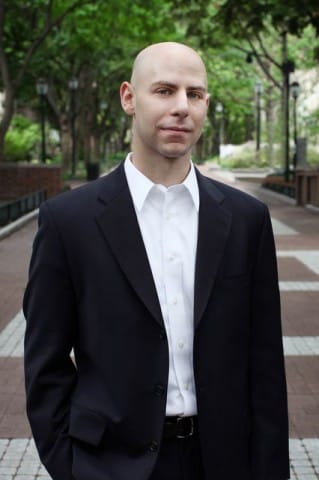It was apropos that Adam Grant spoke at the most recent Authors@Wharton lecture. The series, newly sponsored by the Wharton Leadership Program in 2013, was conceived of by the Wharton management professor himself. It was also timely, given that Grant’s new book, Give and Take: A Revolutionary Approach to Success, was attracting wide attention from the media and readers alike.
The book is alluring in part because its premise is counterintuitive. The nice guy always finishes last, right? Wrong, according to Grant’s research. Givers as he calls them—people who “actually enjoy helping others”—rise to the top of their professions (like sales, medicine, engineering, tech) at greater rates than takers do because, simply put, success is determined by reputation and relationships.
During his Authors@Wharton lecture, Grant illustrated his hypothesis with the story of George Meyer, famed producer and writer of the long-running TV show The Simpsons. Meyer graduated from Harvard in 1978 and enjoyed some success as a comedic writer during brief stints with Late Night With David Letterman and Saturday Night Live, but then found himself in Boulder, CO in the late-80s with a screenplay that no one wanted. His next move was to create a humor magazine called Army Man. And therein begins Meyer’s role as an archetypal giver.
Why? He gave the comic away for free—200 copies—to his friends and acquaintances. They ended up loving it, passing it to their friends, and eventually the ‘zine became a treasured and rare commodity. Meyer would only produce three issues. Grant’s point is that often when people stop actively seeking fame and fortune, fortuity finds them.

Prof. Adam Grant
“Giving things away,” said Grant,” is a great way to be seen as a resource, and not a threat.”
The second key to Meyer’s giving was that he invited friends to collaborate on issues two and three of Army Man. (He did the first issue on his own.) These friends shared in his success. In 1989, Simpsons producer Sam Simon hired Meyer and two friends for the show after becoming a fan of Army Man.
“[Givers] do actually succeed in ways that ripple,” said Grant.
At The Simpsons, Meyer gained a reputation for playing a key role in shaping the show’s comedic style. Part of his success—and the show’s overall success—is Meyer’s “expedition behavior,” said Grant. Meyer tended to think of the team first, himself second. Grant recounted stories of Meyer doing the same at Saturday Night Live—for instance, when he declined to write a skit for Madonna (being for a celebrity, all of the other writers competed for that assignment) and instead wrote one for guest Jimmy Breslin. In such a way, Meyer could wield his considerable comedic talents without threatening his colleagues, while SNL got a great skit for Breslin that supposedly inspired the Austin Powers movies.
The third lesson goes hand in hand with the fourth. Grant estimated that Meyer had a hand in upward of 300 episodes of The Simpsons, but only got writing credit for 12. To Grant, it demonstrates how a giver is more apt to hold up the contributions of others for recognition, rather than his own.
Last, but not least, is the lesson of empathy. Like any writer, Meyer felt pained when his scripts were edited. To keep this fresh in his mind, Grant said, Meyer was known for having his writing “skewered” every day by someone, to make himself a better, gentler editor of his colleagues.
Most of us fall somewhere in the middle on Grant’s scale of giving and taking, a section of the spectrum occupied by people he calls “matchers.” Don’t worry, there is always hope. We all can become better givers, Grant told his audience.

























